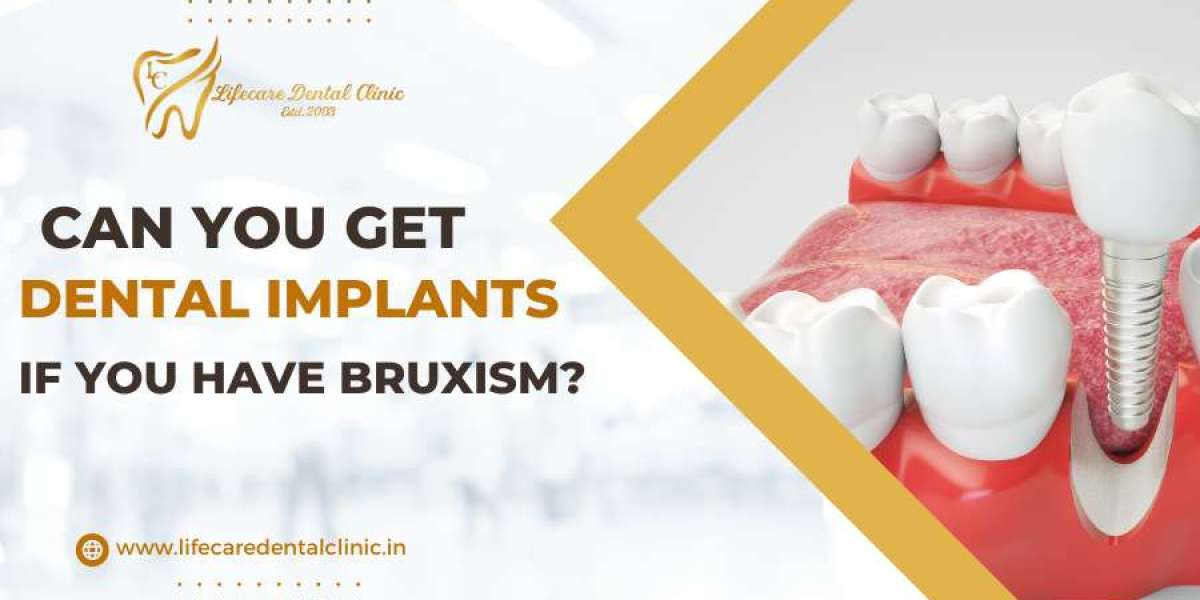Dental implants in Chandigarh have become a popular solution to various dental issues, with many people considering them to replace missing teeth or enhance their smile. One concern that often arises is whether those who grind their teeth can undergo dental implant treatment. In this micro-blog, we will delve into the connection between teeth grinding (bruxism) and dental implants, along with the risks and recommendations associated with the procedure.
What Are Dental Implants?
Dental implants are artificial tooth roots made of titanium that are surgically inserted into the jawbone to support a dental prosthesis such as a crown or denture. These implants can help restore the function and aesthetics of missing teeth and provide a long-lasting solution. It looks and functions like natural teeth too.
What is Bruxism?
Bruxism, or teeth grinding, is an involuntary habit that occurs during sleep or times of stress. The grinding action puts significant pressure on the teeth and jaw, causing potential damage such as tooth wear, fractures, gum recession, and even jaw disorders like temporomandibular joint (TMJ) dysfunction.
Can You Get Dental Implants If You have bruxism?
In general, people suffering from bruxism can still receive dental implants. However, some important factors should be taken into consideration while getting dental implants:
1. Risk of Implant Failure: Bruxism puts excessive force on dental implants which could eventually lead to implant failure if the condition is not managed correctly. The increased pressure may loosen or fracture the implant components or even wear down the protective layer of enamel on neighboring teeth.
2. Timing: Treating bruxism before undergoing dental implant surgery may be necessary to minimize the risks. Consult with your dentist to devise an appropriate treatment plan before proceeding with implants.
3. Customized Treatment Plans: Dentists can assess individual cases of bruxism severity and develop a customized treatment plan to help minimize the risk of complications with dental implants.
Treatment Options for Bruxism:
There are several treatments available to manage bruxism, including:
1. Mouthguards: A custom-made mouthguard can protect the teeth and implants from grinding forces. Mouthguards, also known as night guards or occlusal splints, provide a protective barrier between the upper and lower teeth. It helps to prevent them from grinding against each other. This reduces the risk of tooth damage caused by bruxism. By creating a physical separation between the teeth, mouthguards help distribute the pressure from clenching more evenly. This alleviates stress on specific teeth or areas and minimizes potential damage. Wearing a mouthguard can help relax the jaw muscles, reducing strain and minimizing discomfort associated with bruxism.
2. Stress Management: Engaging in stress-reducing activities and practicing relaxation techniques can help diminish teeth grinding.
3. Orthodontic Treatment: Correcting bite alignment issues through orthodontic treatment may alleviate some of the grinding force. Malocclusion, or misaligned teeth, can contribute to bruxism. Orthodontic treatments such as braces or clear aligners aim to address these alignment issues, potentially reducing the frequency and intensity of teeth grinding. Orthodontic treatments may involve reshaping specific teeth to create a more balanced bite, resulting in decreased pressure on certain teeth and less likelihood of grinding. In some cases, bruxism may be the result of issues with jaw positioning or oral structures that can be corrected with orthodontic treatments like palatal expanders or surgical procedures.
4. Medication and Behavioral Therapy: In some cases, doctors can prescribe medications, or recommend behavioral therapy to reduce teeth grinding.
Conclusion:
If you grind your teeth and are considering dental implants in Chandigarh, it's essential to consult with a dental professional to discuss any potential risks involved. With proper diagnosis and tailored treatment plans, people suffering from bruxism can enjoy the benefits of dental implants and a restored smile.








